Next NDP leader faces ‘thankless task’ of rebuilding ‘in the trenches,’ says former MP as race launches with few candidates
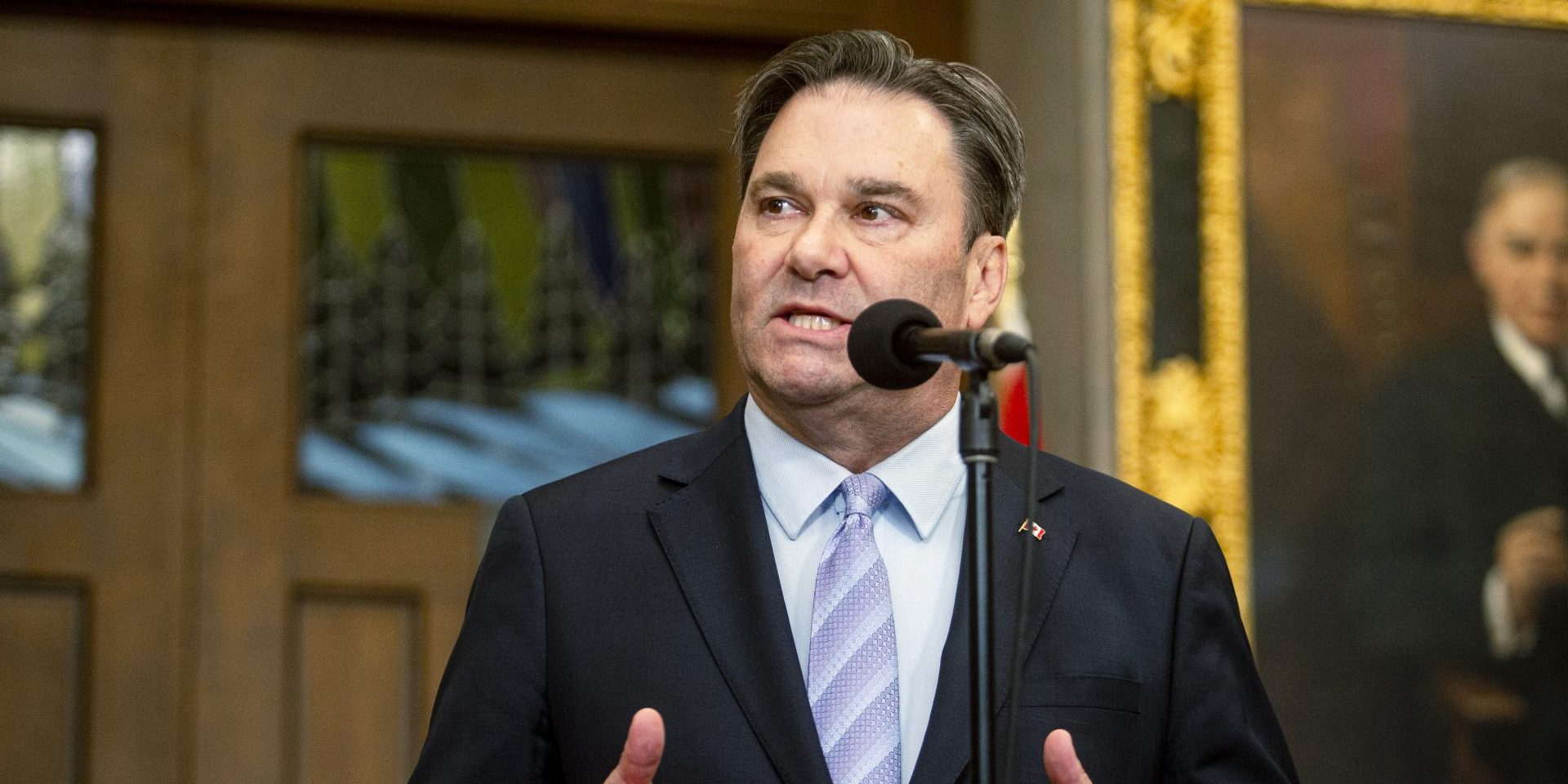
It’s over a week into the federal New Democratic Party’s leadership race, and only two candidates have officially launched their bids for the top job, something one former MP attributes to the party’s worst electoral outcome in its history making leadership “a bit more of a thankless task.”
“There’s no way to sugar coat that the person who is going to take on this leadership is not someone who’s going to become prime minister tomorrow morning,” former NDP MP Matthew Dubé told The Hill Times.
“Even if that is the ultimate end goal, there’s going to be a lot of work to do. A lot of it will be down in the trenches.”
NDP MP Heather McPherson (Edmonton Strathcona, Alta.) is reportedly preparing to throw her cap in the ring, as is journalist and long-time party member Avi Lewis, whose father, Stephen Lewis, led the Ontario NDP in the 1970s. McPherson told The Hill Times she was “seriously considering” the prospect in July.
Campbell River, B.C., city councilor Tanille Johnston is also collecting signatures for nomination. A website collecting support for International Longshore and Warehouse Union President Rob Ashton is also up and running.
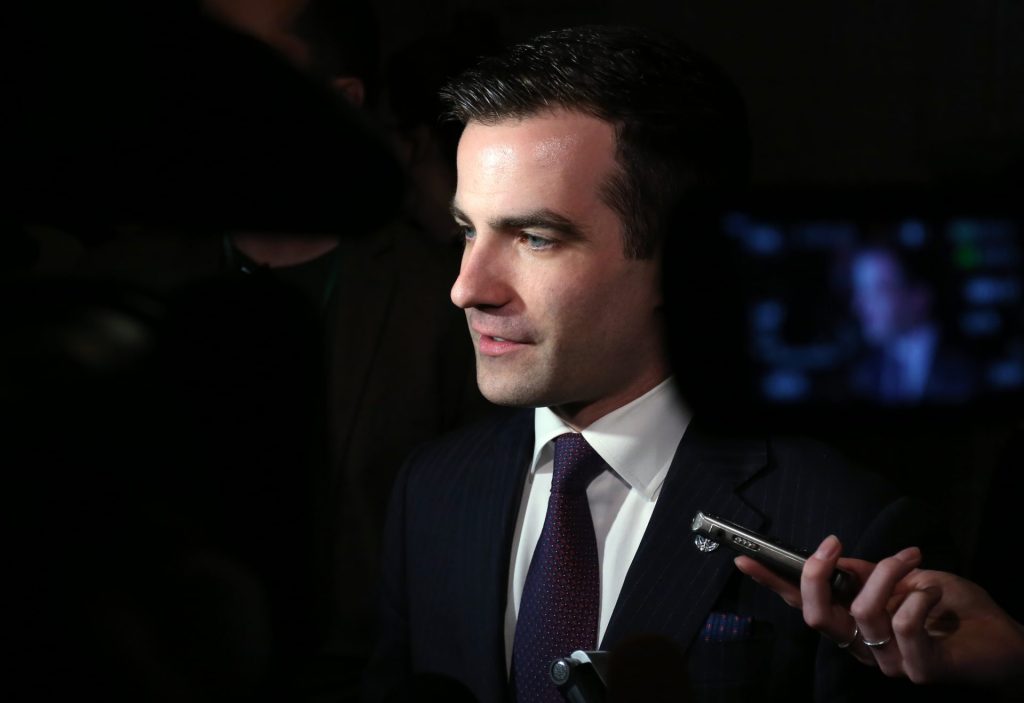
But the only candidates who’ve officially declared are Yves Engler, an activist nominated by the NDP Socialist Caucus, and Tony McQuail, an Ontario farmer and activist, who’s proposing a union between the NDP and the Green Party. Engler’s team says he has currently raised $40,000 for his campaign.
At this same point in the Liberals’ short leadership race back in January, Prime Minister Mark Carney (Nepean, Ont.) had already declared himself, as had three other candidates. In the Conservatives’ 2022 race, Pierre Poilievre (Battle River—Crowfoot, Alta.) announced his candidacy only three days after the Tories ousted then-leader Erin O’Toole. Seven months later, Poilievre became leader, while the Liberals ran a much shorter, three-month race to elect a new leader before the federal election.
The NDP, meanwhile, has historically opted for longer races, with the 2017 contest lasting more than a year.
Dubé, who is now vice-president of Proof Strategies, said he expects it will take candidates “a bit longer” to make a decision to run, as rebuilding the party from its lowest seat count in its history and loss of recognized party status will be “a bit more of a thankless task.”
“The steeper the hill or the harder the job, the more difficult it is to convince people,” Dubé said, adding that candidates will need “a bit more encouragement” to run.
“When you’re looking at rebuilding a party after its worst election in its history—it’s not to say that that’s not important work and valid work, and work that’s very laudable—but it just makes you … have a bit of pause when it comes to making that type of decision,” he said.
New leader needs ‘serious plan’ to reorient party, says Leichnitz
But Jordan Leichnitz, a former NDP strategist who now works for the German non-profit Friedrich Ebert Stiftung, said there could be strategic reasons for candidates holding back early on in the seven-month-long race.
Though Singh resigned as party leader following his election-night defeat last in April, the contest to replace him only officially kicked off on Sept. 2. The next leader will be selected at the end of March 2026 at the party’s convention to be held in Winnipeg, Man.
“They’re going to [launch] at a time when they’re not completely competing for headlines and attention, and obviously we’re headed immediately into the return of Parliament,” said Leichnitz, noting the news cycle has been “pretty busy” over the last couple of weeks.
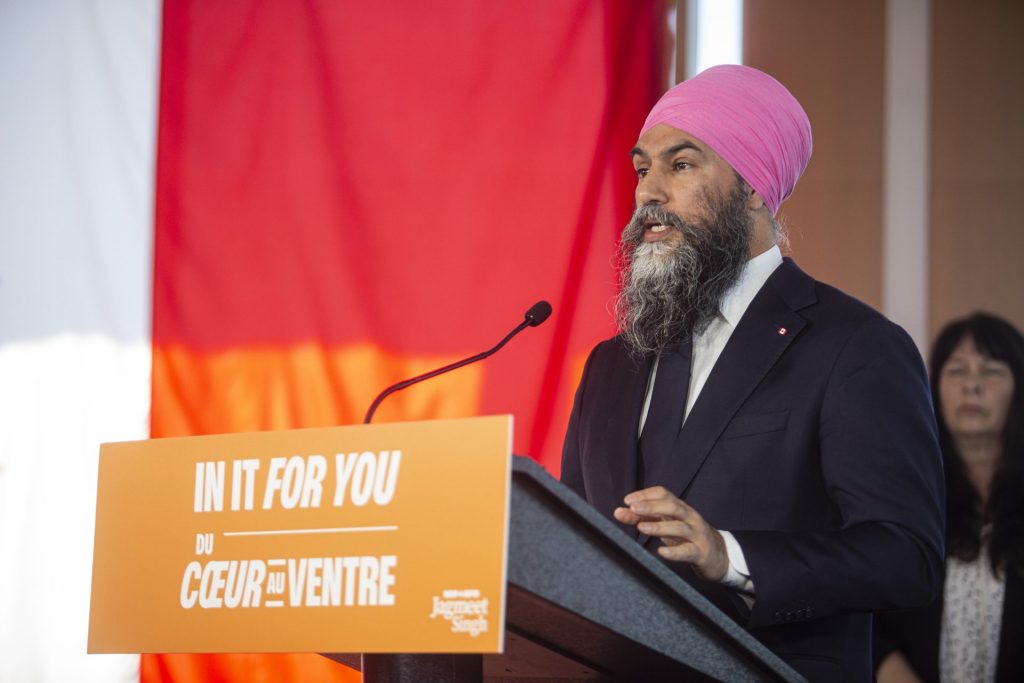
The rules governing the race are broadly similar to those governing the 2017 contest, but the entry fee has been raised from $30,000 to $100,000. Candidates hoping to run will have to collect at least 50 signatures from different regions: Ontario, Quebec, the Prairies, British Columbia/the North, and Atlantic provinces. At least 10 per cent of their signatures must also come from young New Democrats, and 50 per cent from non-cis male members. The entry fee is spread over four installments, the first of which is due with the submission of signatures. Candidates must also pass a vetting process.
But Leichnitz didn’t share Dubé’s assessment on why candidates could be holding back.
“I don’t think New Democrats have ever been scared of hard work,” she said.
Still, there lies a “huge job ahead” for the next leader, Leichnitz said, adding that whoever wins will need to have a “serious plan” for reorienting the party.
Leichnitz also emphasized there’s “internal” work that needs to be done before campaigns are launched, like fundraising and gathering signatures. Candidates will be waiting to have their endorsements lined up across the country before they launch publicly, she said.
The seven New Democrat MPs set to return to Parliament on Sept. 15 held a caucus retreat in MP Gord Johns’ riding of Courtenay—Alberni, B.C., from Sept. 8 to 11. Though Johns told The Hill Times the leadership race is “low” on his “list of priorities” and declined to comment on the subject, he said the MPs would be spending the retreat discussing their fall strategy.
“I just got re-elected, and the people in my riding are counting on me to go to bat for them,” he said. “We’ve got some heavy lifting to do in the House of Commons, and I’m excited to get back.”
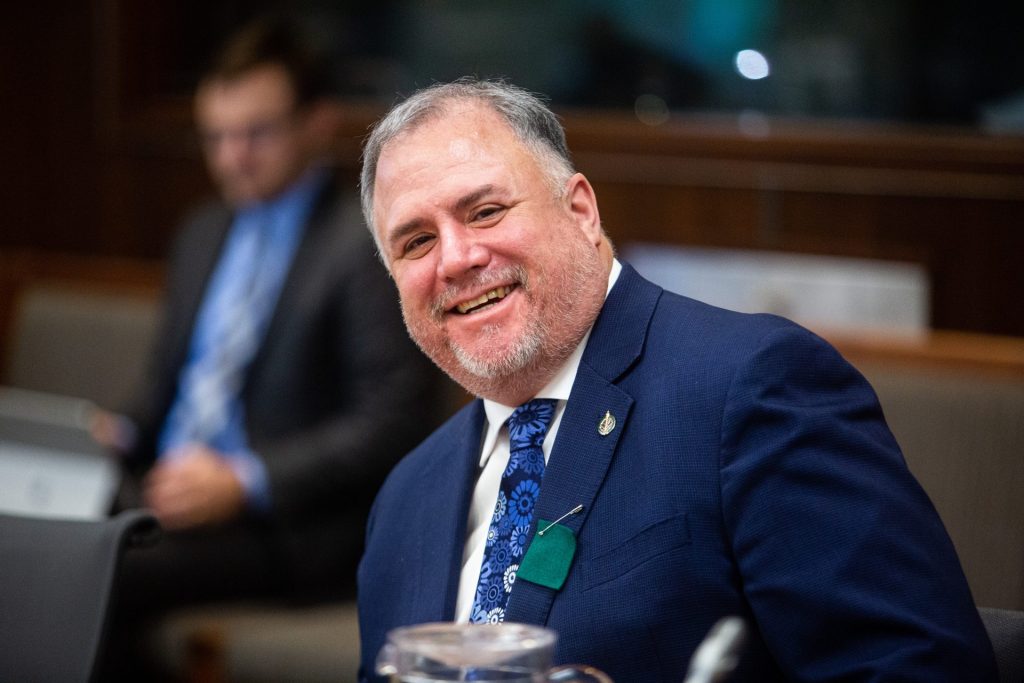
Johns himself is not running, nor are NDP MPs Alexandre Boulerice (Rosemont—La Petite-Patrie, Que.), Lori Idlout (Nunavut), or the party’s interim leader Don Davies (Vancouver Kingsway, B.C.). The remaining two NDP MPs, Jenny Kwan (Vancouver East, B.C.) and Leah Gazan (Winnipeg Centre, Man.), have yet to make their positions clear.
New leader can ‘pull’ from provincial NDP support: ex-strategist Parkin
Tom Parkin, a former director of organization for the Saskatchewan NDP, said though he isn’t concerned about the lack of major leadership pledges, the contest should have started over the summer.
“We should have opened the whole race earlier and got it going over the summer and concluded quicker,” Parkin said.
“It led to some dead time for the NDP over the summer—I think that was kind of a signal for people to stand down … when they shouldn’t have.”
He also said the party is in an “odd” situation, as in spite of its federal defeat, the NDP has formed governments in B.C. and Manitoba. It is also currently the official opposition in Alberta, Nova Scotia, Ontario, and Saskatchewan.
“Provincially, it’s actually doing quite well,” highlighted Parkin, who is the principal of Impact Strategies. “A huge piece that a leader needs to be able to accomplish is to use that existing strength in rebuilding a federal strength.”
He said a new federal leader should crack how to “pull” provincial NDP support into “a direction that they can align with and they can draw strength with” into a “national theme.”
“We’ve had this in the past … the federal NDP getting played against provincial sections, especially sections that look like they have [a] very, very good chance of winning government,” he said. “One of the things that really needs to be considered is what person can assist these provincial sections.”
More recently, in March 2024, now-Alberta NDP Leader Naheed Nenshi expressed concerns about his party’s federal ties.
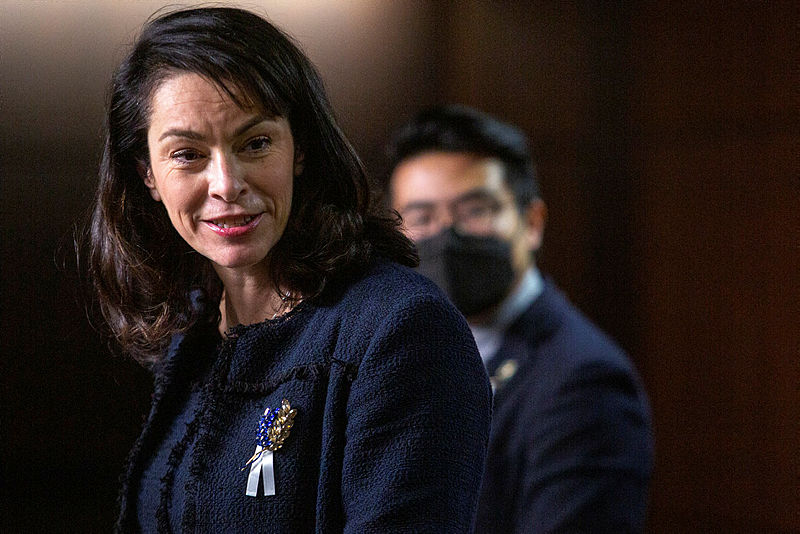
Dubé said he wants to see a leader fluent in French and able to speak to Quebec-specific issues. He also pointed to a vision for the party “as a vehicle for forming government,” and is looking for someone capable of unifying the NDP’s different strands, including labour and environment supporters.
“Everyone talks about the Liberals and Conservatives being a big tent, but the NDP can be quite a big tent, too—maybe not numerically as big—but in terms of what draws people to the party,” he said.
“Bringing everyone together … that’s especially important after a difficult election.”
Leichnitz noted the need to unify and “bridge the gap” between workers, urban progressives, and supporters in rural areas across the country.
She also said New Democrats need a leader able to speak to the concerns of average Canadians. In recent months, some have accused the party of being out of touch with its grassroots membership. One group has called on donors to financially support their riding associations instead of the central party, saying the NDP has lost touch with its base.
“We need somebody who has a real demonstrated ability to connect with regular people … who are dealing with cost of living struggles,” she said. People who are “going through this difficult economic time, and have actual concerns in their lives and count on the services that the government provides to make their life better.”
ewand@hilltimes.com
The Hill Times






 LICENSING
LICENSING PODCAST
PODCAST ALERTS
ALERTS













